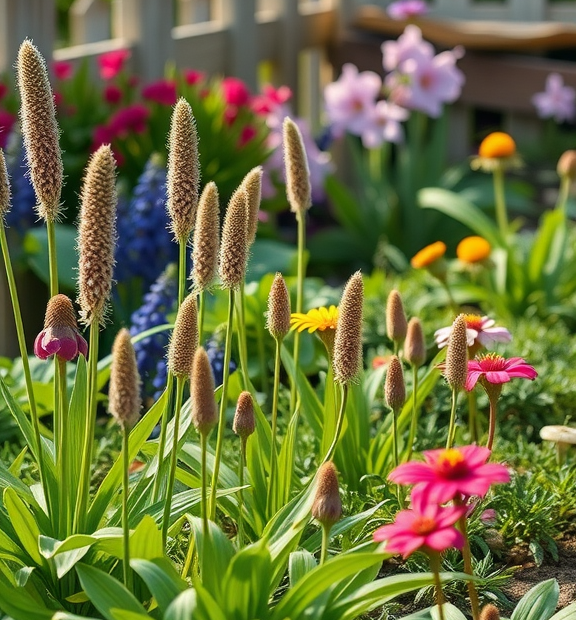Essential Gardening Tips for Beginners
Gardening can seem overwhelming at first, especially for beginners. However, with the right tips and guidance, you can cultivate a lovely garden that not only beautifies your space but also provides fresh produce and promotes well-being. Here are some essential gardening tips to help you get started on your green journey.
Understand Your Environment
Before you plant anything, it is crucial to understand your environment. Take note of the following:
- Climate: Know your USDA plant hardiness zone. This helps you choose plants that will thrive in your region.
- Soil Quality: Test your soil’s pH and nutrient levels. This determines what amendments you may need for healthy growth.
- Sunlight: Observe how much sun your garden areas receive throughout the day. Most vegetables and flowers need at least 6 hours of sunlight.
Choose the Right Plants
Starting small with the right plants helps reduce frustration. For beginners, consider easy-to-grow varieties:
- Herbs: Basil, rosemary, and parsley are not only simple to grow but also useful in the kitchen.
- Vegetables: Lettuce, radishes, and tomatoes are forgiving and will provide a rewarding harvest.
- Flowers: Marigolds and zinnias bloom brightly and require minimal care.
Plan Your Garden Layout
Having a well-planned layout streamlines the gardening process. Think about:
- Raised Beds: These are excellent for beginners as they improve drainage and soil quality.
- Row Spacing: Ensure adequate space between rows to allow for easy access and air circulation.
- Companion Planting: Some plants can boost each other’s growth. For instance, tomatoes benefit from marigolds planted nearby.
Watering Wisely
Proper watering habits are essential for plant health. Here’s how:
- Watering Schedule: Water early in the morning or late in the afternoon when evaporation is minimal.
- Deep Watering: Focus on deep watering less frequently rather than shallow watering every day. This encourages deep root growth.
- Mulch: Adding a layer of mulch helps retain moisture and suppress weeds.
Be Attentive to Weeds and Pests
Weeds and pests can quickly overrun a garden. Stay vigilant by:
- Mulching: As mentioned, mulch can reduce weed growth significantly.
- Hand-Pulling Weeds: Regularly inspect and remove weeds before they develop deep roots.
- Natural Pest Control: Encourage beneficial insects, like ladybugs, or use simple solutions like neem oil to manage unwanted pests.
Learn About Fertilization
Providing the right nutrients is key to a healthy garden. Consider the following:
- Compost: Make your own compost to enrich your soil naturally.
- Organic Fertilizers: Use these to promote plant health without harmful chemicals.
- Follow Directions: Always adhere to application directions when using fertilizers to avoid damaging plants.
Patience and Observation
Love what I do? Be a hero and help me keep creating awesome content!
Support My Mission Now!Every donation fuels more great stuff – thank you, legend!
Remember that gardening is a learning process. Be patient and take time to observe your plants. You might notice changes that will help you optimize your care techniques. Keep a garden journal to track growth and any issues that arise, making it easier to adapt in the future.
With these essential tips for gardening for beginners, you can start your gardening journey with confidence. Enjoy the process, and watch your garden flourish with the care and attention you give it!
Common Mistakes to Avoid in Your First Garden
Love what I do? Be a hero and help me keep creating awesome content!
Support My Mission Now!Every donation fuels more great stuff – thank you, legend!
Starting your first garden can be a thrilling adventure, but it can also lead to some common pitfalls. Avoiding these mistakes will help you create a thriving garden space you’ll be proud of. Here are some key missteps to steer clear of:
Overlooking Plant Selection
Choosing the right plants for your garden is crucial. Consider your local climate, soil type, and sunlight availability before making selections. Selecting plants that aren’t suited for your environment can lead to frustration. Popular beginner-friendly plants include:
- Tomatoes
- Radishes
- Marigolds
- Basil
These plants are not only easier to grow but also provide delightful yields and colors to your garden.
Planting at the Wrong Time
Love what I do? Be a hero and help me keep creating awesome content!
Support My Mission Now!Every donation fuels more great stuff – thank you, legend!
Timing is everything in gardening. Planting too early or too late can impact your plants’ ability to thrive. Research when the last frost occurs in your area, and use that as a guideline. Starting seeds indoors can also help you get a jump on the season.
Neglecting Soil Health
Your plants’ foundation is the soil. Poor soil can lead to poor growth, diseases, and overall disappointment. Make sure to:
- Test your soil for pH and nutrient levels.
- Add organic matter, such as compost, to enrich it.
- Consider using mulch to improve moisture retention.
Love what I do? Be a hero and help me keep creating awesome content!
Support My Mission Now!Every donation fuels more great stuff – thank you, legend!
Healthy soil translates to healthy plants, so don’t skimp on this essential step!
Inadequate Watering
Water is vital, but overwatering can be as damaging as underwatering. Establish a consistent watering schedule that considers your climate and the specific needs of your plants. A few tips include:
- Water early in the morning to reduce evaporation.
- Check the soil’s moisture before watering; it should feel damp but not soggy.
- Consider drip irrigation or soaker hoses for efficient watering.
Ignoring Weeds and Pests
Weeds and pests can wreak havoc on a garden and can quickly spiral out of control. Regularly inspect your garden for intruding weeds and apply preventive measures. Here’s how:
- Use mulch to suppress weeds.
- Hand-pick larger pests or use organic options to deter them.
- Rotate crops every season to prevent pest infestations.
Staying vigilant will help you maintain a healthy garden.
Overcrowding Plants
New gardeners sometimes pack plants too closely, thinking it will yield more produce. However, overcrowded plants compete for resources, often leading to stunted growth. Each plant variety has specific spacing requirements, so be sure to follow those recommendations. Giving plants enough room will allow air circulation and access to sunlight.
Not Taking Notes
As you embark on your gardening journey, keeping track of what works and what doesn’t can vastly improve your skills. Creating a gardening journal can help you monitor your plants’ growth patterns, planting dates, and even the weather conditions during their growing season. You can later reference this information when planning future gardens.
Neglecting to Enjoy the Process
Gardening is not only about the end result; it’s also about the joy of nurturing your plants. Don’t rush through the activities or get discouraged by setbacks. Take time to enjoy the learning journey, celebrate small victories, and embrace any mistakes along the way. Each experience will teach you something valuable.
By being mindful of these common mistakes, you can set the stage for a flourishing garden that brings you joy and satisfaction. Each garden is unique, and with patience and dedication, you’ll develop your green thumb. Happy gardening!
Conclusion
Starting your gardening journey can be incredibly rewarding, offering a sense of accomplishment and a connection to nature. By following the essential gardening tips shared in this article, you are on the right track to cultivating a flourishing garden. Remember to choose the right plants for your environment, prepare your soil properly, and maintain a regular watering routine. Each of these elements is fundamental to setting up a healthy and vibrant garden.
Love what I do? Be a hero and help me keep creating awesome content!
Support My Mission Now!Every donation fuels more great stuff – thank you, legend!
Equally important is being aware of common mistakes that many beginners encounter. Understanding pitfalls such as overwatering, planting too close together, or neglecting pest control can save you time and frustration. Learning from these mistakes will not only enhance your gardening skills but also boost your confidence.
As you embrace these tips and lessons, give yourself grace. Gardening is a process of trial and error, and even the most experienced gardeners learn something new each season. Allow your garden to evolve, and don’t hesitate to ask for advice or seek resources as you grow. Engaging with local gardening communities, whether in-person or online, can provide invaluable support and encouragement.
Love what I do? Be a hero and help me keep creating awesome content!
Support My Mission Now!Every donation fuels more great stuff – thank you, legend!
Remember, each day spent in your garden is an opportunity to learn and enjoy the beauty of growth. So grab your tools, roll up your sleeves, and step into the wonderful world of gardening. With patience and dedication, you will transform your outdoor space into a personal paradise that reflects your passion and creativity. Happy gardening!

